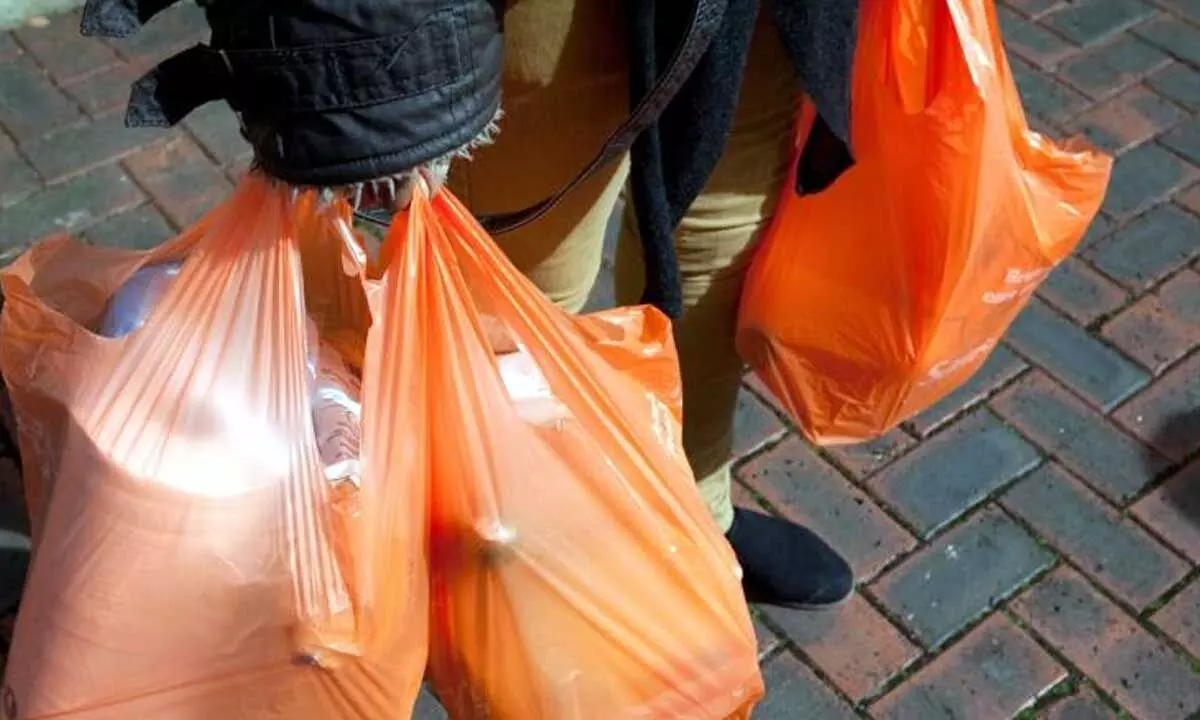Plastic bag ban a blessing for jute sector
The prices of golden fibre in India are heading southward since May 2022. The prices of raw jute (TD-5) reduced 3.94 per cent to reach Rs 6,200 per quintal (Q) in June 2022.
image for illustrative purpose

The prices of golden fibre in India are heading southward since May 2022. The prices of raw jute (TD-5) reduced 3.94 per cent to reach Rs 6,200 per quintal (Q) in June 2022. The prices dropped to Rs 6,454 per quintal, declining by 4.07 per cent during May 2022. Jute prices had earlier gained in April 2022 because the central government had increased the minimum support price (MSP). Interestingly, in May, nearly six months after the price of raw jute had been capped at Rs 6,500 per quintal, which perceived to have led to a crisis in the industry, the government had decided to withdraw it.
It is pertinent to mention here that jute prices had been ruling at Rs 6,595.65 per quintal in March 2022. It had increased by 2.02 per cent to Rs 6,728.57 per quintal in April. But jute slipped 4.07 per cent to Rs 6,454.55 per quintal in May and 3.94 per cent to Rs 6,200 per quintal in June 2022. The prices had gained 1.28 per cent to reach Rs 6,540 per quintal in February from Rs 6,457.14 per quintal of January 2022.
The Centre had increased the minimum support price (MSP) of raw jute by Rs 250 to Rs 4,750 per quintal for the 2022-23 season. The new MSP was announced in March 2022, before the beginning of the next Kharif sowing.
Going by a recent Union ministry of agriculture report, the total area under sowing of Jute and Mesta was 6.80 lakh hectare till 24 June, 2022 which was 0.28 per cent lower from the sowing of 6.82 lakh hectare during corresponding period of last season. According to third agriculture advance estimate of 2021-22, Jute and Mesta production was 102.22 lakh MT which was lower than the target of 106 lakh MT but was higher than the production of 93.54 lakh MT in previous year 2020-21.
Precisely the same time, the jute sector has sought government support to tap advantages under schemes like affordable rental housing complexes, creation of bank credit facilitation scheme for modernisation, and funds for research and development. Indian Jute Mills Association (IJMA) also pointed out that jute mills are facing credit unavailability because they are not classed as micro, small, and medium enterprises. A large number of mills wish to avail loans to garner funds to modernise their operations and the IJMA suggested that the National Jute Board provide 100 per cent credit guarantees to banks for such loans. Mind you that more than 2.5 lakh mill workers and 40 lakh farmers are directly dependent on the fate of the sector.
Meanwhile, Jute Corporation of India (JCI) is gearing up for an intensified minimum support price (MSP) operation beginning this month (July), which is the beginning of the new crop year, with an objective to prevent distress selling by farmers and also ensure a steady supply of raw jute to mills. The agency will conduct its raw jute procurement exercise through 110 purchase centres across the country and plans to engage co-operatives and self-help groups to strengthen the operation.
Mind you that with the Centre working to ease out single use plastic in retail with effect from July 1, jute bags can replace plastic bags and the jute sector certainly has strong potential for growth.

